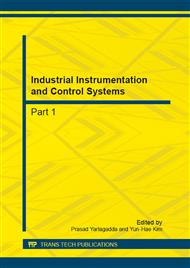[1]
Y. Bilu, G. Hanrot and P. M. Voutier (with an appendix by M. Mignotte), Existence of primitive divisors of Lucas and Lehmer numbers, J. Reine Angew. Math., 539, 75-122 (2001).
DOI: 10.1515/crll.2001.080
Google Scholar
[2]
Z. Ke, On the diophantine equation Sci. Sinica, 14(5), 457-460 (1965).
Google Scholar
[3]
V. A. Lebesgue, Sur l'impossibilité en nombres entiers de l'equation , Nouv. Ann. Math., 1(9), 178-181 (1850).
Google Scholar
[4]
W. Ljunggren, Some remarks on the diophantine equations and, J. Londom Math. Soc., 41(4), 542-544 (1966).
Google Scholar
[5]
A. Mourad, Les nombres de Lucas et Lehmer sans diviseur primitif, J. Théor. Nombres Bordx., 18(2), 299-313(2006).
DOI: 10.5802/jtnb.545
Google Scholar
[6]
I. Pink, On the diophantine equation , Publ. Math. Debrecen. 65(1-2), 205-213(2004).
Google Scholar
[7]
I. Pink and Sz. Tengely, Full powers in arithmetic progressions, Publ. Math. Debrecen. 57(3-4), 535-545(2000).
DOI: 10.5486/pmd.2000.2422
Google Scholar
[8]
Sz. Tengely, On the diophantine equation F(x)= G(y), Acta Arith., 110(2), 185-200(2003).
Google Scholar
[9]
Sz. Tengely, On the diophantine equation , lndag. Math., New Ser., 15(2), 291-304(2004).
Google Scholar
[10]
Sz. Tengely, On the diophantine equation , Acta Arith., 127(1), 71-86(2007).
Google Scholar
[11]
P. M. Voutier. Primitive divisors of Lucas and Lehmer sequences. Math. Comp., 64(5), 869-888(1995).
DOI: 10.1090/s0025-5718-1995-1284673-6
Google Scholar
[12]
P. –Z. Yuan, On the diophantine equation , lndag. Math., New Ser., 16(2), 301-320(2005).
Google Scholar


